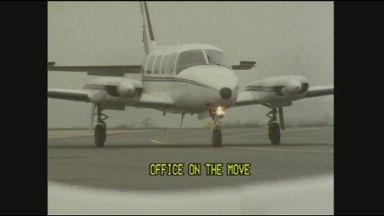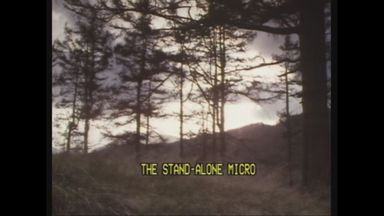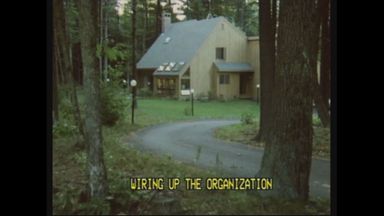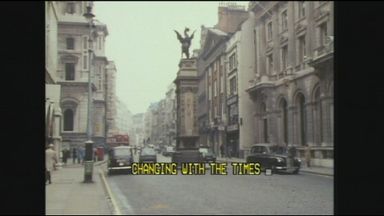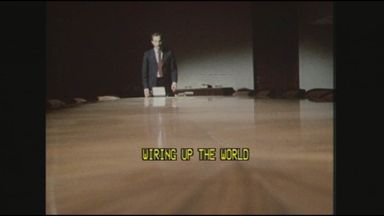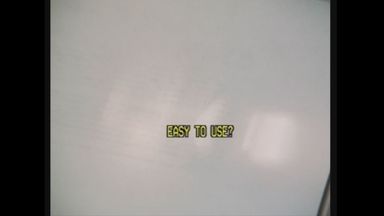Electronic Office
4. Changing with the Times
Clips from this programme
Compared with the problems faced by Fleet Street, how has new technology changed some working practices and culture of the New York Times? Initial objections give way to enthusiasm.
Duration: 21:06Security of the system at the New York Times - graceful degradation
Duration: 01:51Improved efficiency in the New York Times classified advertisements department and the concerns of the unions about surveillance of the workers
Duration: 03:20Jim Tuitt, sports correspondent of the New York Times submits his last minute copy for a ball game at Shea Stadium. The newspaper is produced more efficiently with hot metal now abandoned. Many craft skills have gone and people have had to adapt to new technology.
Duration: 01:34Electronic Office
1. Office on the Move
First broadcast: 12th April 1984
Duration 24:28
1: Office on the Move : The combination of ever cheaper computers and improved telecommunications has produced a quiet revolution on the desks of secretaries, clerks, middle managers and executives, sometimes for good, sometimes for ill. IAN MCNAUGHT-DAVIS. himself the director of a major computer company, begins a six-part examination of the office technology of today and tomorrow. Production MIKE COCKER and DAVID ALLEN
2. The Stand-alone Micro
First broadcast: 19th April 1984
Duration 24:44
2: The Stand-alone Micro : Most of the computers in business are being used for relatively straightforward tasks like word processing, financial planning and simple data base management. IAN MCNAUGHT-DAVIS examines these various 'stand-alone' applications in the second of six programmes about the office technology of today and tomorrow. Production MIKE COCKER and DAVID ALLEN
3. Wiring up the Organisation
First broadcast: 6th May 1984
Duration 24:41
3: Wiring up the Organisation : A microcomputer on its own can perform many useful tasks in the office but as soon as an organisation starts linking computers together into a network, its whole style of working may change dramatically, with a consequent challenge to management. In the third of six programmes IAN MCNAUGHT-DAVIS continues his examination of the office technology of today and tomorrow. Film editor JOHN DlNWOODIE Production MIKE COCKER and DAVID ALLEN
4. Changing with the Times
First broadcast: 10th May 1984
Duration 23:45
4: Changing with the Times How do modern electronic methods affect the working habits and culture of an old established daily newspaper? IAN MCNAUGHT-DAVIS finds out with the help of journalists, editors and others at the New York Times. Film editor JOHN DINWOODIE Production MIKE COCKER and DAVID ALLEN
Now playing
5. Wiring up the World
First broadcast: 17th May 1984
Duration 24:25
5: Wiring up the World : The microcomputing revolution in business would mean little without the telephone network. Companies can exchange data electronically with each other and even with us, their customers, in a fraction of a second, and this is having a considerable effect on competition. Production MIKE COCKER and DAVID ALLEN
6. Easy to Use?
First broadcast: 24th May 1984
Duration 24:32
6: Easy to Use? : Computer manufacturers at present claim 'ease of use' for their machines. In reality most computers are far from easy to use. In this last programme IAN MCNAUGHT-DAVIS takes a look at some of the work being done to humanise the technology. Production MIKE COCKER and DAVID ALLEN






